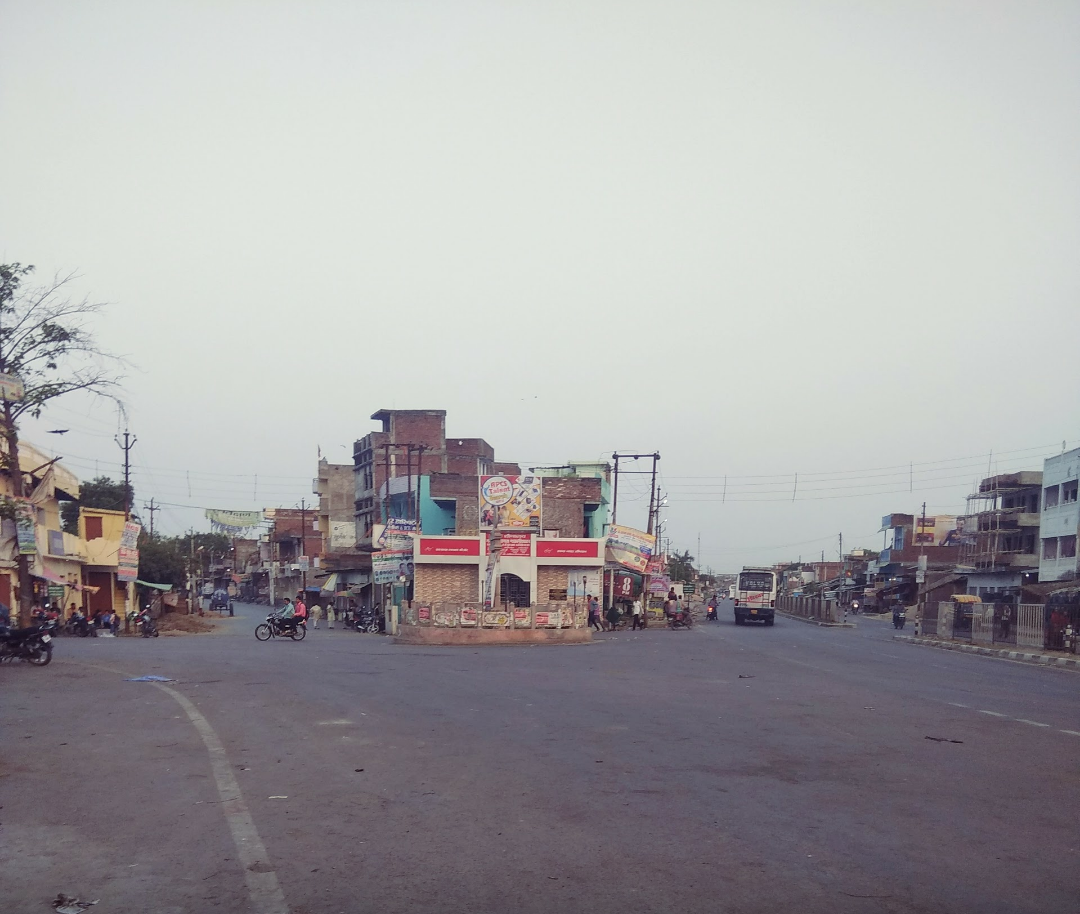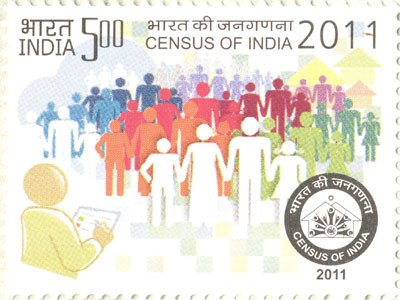|
Machhali Shahar
Machhlishahr is a town in Jaunpur district in the Indian state of Uttar Pradesh. It is situated 30 km west of district headquarters Jaunpur. NH-231 passes through the city. Machhlishahr – Janghai – Bhadohi four-lane highway is under construction which will boost the economy of the region. Machhlishahr is a Nagar panchayat and there has been a longstanding demand for making it a Nagar palika parishad. In 2020, Machhalisahar nagar panchayat has secured 33rd all India rank in Swachh Survekshan cleanliness survey. Geography Machhlishahr is located at . It has an average elevation of 84 metres (275 feet). It has been assigned 222143 pincode by Indian postal services. Demographics As of 2011 Indian Census, Machhlishahr had a total population of 26,107, of which 13,284 were males and 12,823 were females. Population within the age group of 0 to 6 years was 3,886. The total number of literates in Machhlishahr was 17,205, which constituted 65.9% of the population w ... [...More Info...] [...Related Items...] OR: [Wikipedia] [Google] [Baidu] |
WikiProject Indian Cities
A WikiProject, or Wikiproject, is a Wikimedia movement affinity group for contributors with shared goals. WikiProjects are prevalent within the largest wiki, Wikipedia, and exist to varying degrees within sister projects such as Wiktionary, Wikiquote, Wikidata, and Wikisource. They also exist in different languages, and translation of articles is a form of their collaboration. During the COVID-19 pandemic, CBS News noted the role of Wikipedia's WikiProject Medicine in maintaining the accuracy of articles related to the disease. Another WikiProject that has drawn attention is WikiProject Women Scientists, which was profiled by '' Smithsonian'' for its efforts to improve coverage of women scientists which the profile noted had "helped increase the number of female scientists on Wikipedia from around 1,600 to over 5,000". On Wikipedia Some Wikipedia WikiProjects are substantial enough to engage in cooperative activities with outside organizations relevant to the field at issue. For ex ... [...More Info...] [...Related Items...] OR: [Wikipedia] [Google] [Baidu] |
Janata Party
The Janata Party ( JP, lit. ''People's Party'') was a political party that was founded as an amalgam of Indian political parties opposed to the Emergency that was imposed between 1975 and 1977 by Prime Minister Indira Gandhi of the Indian National Congress. In the 1977 general election, the party defeated the Congress and Janata leader Morarji Desai became the first non-Congress prime minister in independent modern India's history. Raj Narain, a socialist leader, had filed a legal writ alleging electoral malpractice against Indira Gandhi in 1971. On 12 June 1975, Allahabad High Court found her guilty of using corrupt electoral practices in her 1971 election victory over Narain in the Rae Bareli constituency. She was barred from contesting any election for the next six years. Economic problems, corruption and the conviction of Gandhi led to widespread protests against the Congress (R) government, which responded by imposing a State of Emergency. The rationale was that of pr ... [...More Info...] [...Related Items...] OR: [Wikipedia] [Google] [Baidu] |
Raj Keshar Singh
Raj or RAJ may refer to: History * British Raj, the 1858–1947 rule of the British Crown over India * Company Raj, the 1757–1858 rule of the East India Company in South Asia * Licence Raj, the Indian system of elaborate licences, regulations and accompanying red tape * Mafia Raj, slang term for a criminalized nexus of government officials Places * Raj, Masovian Voivodeship, east-central Poland * Raj, Pomeranian Voivodeship, north Poland * Raj, Warmian-Masurian Voivodeship, north Poland * Ráj, a village in the Czech Republic * Raj, the Hungarian name for Brazii Commune, Arad County, Romania People * Raj (name), including a list of people and fictional characters with the name * Raj (caste), Muslim ethnic group in northern India Other * Raj Comics, Indian comic book publisher * Raj TV or RAJ, Tamil channel, Chennai, India * Raj–Koti, a pair of composers and musicians in the Telugu film industry * Raj Engineering College, Jodhpur, Rajasthan, India * raj, the ISO 639-2 ... [...More Info...] [...Related Items...] OR: [Wikipedia] [Google] [Baidu] |
Nageshwar Dwivedi
Nageshwar Dwivedi (16 October 1916 – 1 January 2010) was an Indian politician. He was elected to the Lok Sabha, the lower house of the Parliament of India from the Machhlishahr, Uttar Pradesh as a member of the Indian National Congress The Indian National Congress (INC), colloquially the Congress Party but often simply the Congress, is a political party in India with widespread roots. Founded in 1885, it was the first modern nationalist movement to emerge in the British E .... References External linksOfficial biographical sketch in Parliament of India website Indian National Congress politicians [...More Info...] [...Related Items...] OR: [Wikipedia] [Google] [Baidu] |
Indian National Congress
The Indian National Congress (INC), colloquially the Congress Party but often simply the Congress, is a political party in India with widespread roots. Founded in 1885, it was the first modern nationalist movement to emerge in the British Empire in Asia and Africa. From the late 19th century, and especially after 1920, under the leadership of Mahatma Gandhi, the Congress became the principal leader of the Indian independence movement. The Congress led India to independence from the United Kingdom, and significantly influenced other anti-colonial nationalist movements in the British Empire. Congress is one of the two major political parties in India, along with its main rival the Bharatiya Janata Party. It is a "big tent" party whose platform is generally considered to lie in the centre to of Indian politics. After Indian independence in 1947, Congress emerged as a catch-all and secular party, dominating Indian politics for the next 20 years. The party's first prime minister ... [...More Info...] [...Related Items...] OR: [Wikipedia] [Google] [Baidu] |
Ganapati Ram
Ganapati Ram (26 July 1926 – 3 April 1985) was an Indian politician. He was elected to the Lok Sabha, the lower house of the Parliament of India from the Machhlishahr, Uttar Pradesh as a member of the Indian National Congress The Indian National Congress (INC), colloquially the Congress Party but often simply the Congress, is a political party in India with widespread roots. Founded in 1885, it was the first modern nationalist movement to emerge in the British E .... Ram died on 3 April 1985, at the age of 58. References {{reflist External linksOfficial biographical sketch in Parliament of India website 1926 births 1985 deaths Lok Sabha members from Uttar Pradesh India MPs 1952–1957 India MPs 1957–1962 India MPs 1962–1967 Indian National Congress politicians ... [...More Info...] [...Related Items...] OR: [Wikipedia] [Google] [Baidu] |
Islam In Uttar Pradesh
Islam in Uttar Pradesh is the second largest religion in the state with 38,483,967 adherents in 2011, forming 19.26% of the total population. Muslims of Uttar Pradesh have also been stereotypically referred to as Indian Musalman (). They do not form a unified ethnic community, but are differentiated by sectarian and Baradari divisions, as well as by language and geography. Nevertheless, the community shares some unifying cultural factors. has more Muslims than any other Muslim-majority countries in the world except I ... [...More Info...] [...Related Items...] OR: [Wikipedia] [Google] [Baidu] |
Hindus
Hindus (; ) are people who religiously adhere to Hinduism.Jeffery D. Long (2007), A Vision for Hinduism, IB Tauris, , pages 35–37 Historically, the term has also been used as a geographical, cultural, and later religious identifier for people living in the Indian subcontinent. The term ''"Hindu"'' traces back to Old Persian which derived these names from the Sanskrit name ''Sindhu'' (सिन्धु ), referring to the river Indus. The Greek cognates of the same terms are "''Indus''" (for the river) and "''India''" (for the land of the river). The term "''Hindu''" also implied a geographic, ethnic or cultural identifier for people living in the Indian subcontinent around or beyond the Indus River, Sindhu (Indus) River. By the 16th century CE, the term began to refer to residents of the subcontinent who were not Turkic peoples, Turkic or Muslims. Hindoo is an archaic spelling variant, whose use today is considered derogatory. The historical development of Hindu self-i ... [...More Info...] [...Related Items...] OR: [Wikipedia] [Google] [Baidu] |
Census
A census is the procedure of systematically acquiring, recording and calculating information about the members of a given population. This term is used mostly in connection with national population and housing censuses; other common censuses include censuses of agriculture, traditional culture, business, supplies, and traffic censuses. The United Nations (UN) defines the essential features of population and housing censuses as "individual enumeration, universality within a defined territory, simultaneity and defined periodicity", and recommends that population censuses be taken at least every ten years. UN recommendations also cover census topics to be collected, official definitions, classifications and other useful information to co-ordinate international practices. The UN's Food and Agriculture Organization (FAO), in turn, defines the census of agriculture as "a statistical operation for collecting, processing and disseminating data on the structure of agriculture, covering th ... [...More Info...] [...Related Items...] OR: [Wikipedia] [Google] [Baidu] |
Scheduled Castes
The Scheduled Castes (SCs) and Scheduled Tribes (STs) are officially designated groups of people and among the most disadvantaged socio-economic groups in India. The terms are recognized in the Constitution of India and the groups are designated in one or other of the categories. For much of the period of British rule in the Indian subcontinent, they were known as the Depressed Classes. In modern literature, the ''Scheduled Castes'' are sometimes referred to as Dalit, meaning "broken" or "dispersed", having been popularised by B. R. Ambedkar (1891–1956), a Dalit himself, an economist, reformer, chairman of the Constituent Assembly of India, and Dalit leader during the independence struggle. Ambedkar preferred the term Dalit to Gandhi's term, Harijan, meaning "person of Hari/Vishnu" (or Man of God). In September 2018, the government "issued an advisory to all private satellite channels asking them to 'refrain' from using the nomenclature 'Dalit'", though "rights groups and i ... [...More Info...] [...Related Items...] OR: [Wikipedia] [Google] [Baidu] |
2011 Indian Census
The 2011 Census of India or the 15th Indian Census was conducted in two phases, house listing and population enumeration. The House listing phase began on 1 April 2010 and involved the collection of information about all buildings. Information for National Population Register (NPR) was also collected in the first phase, which will be used to issue a 12-digit unique identification number to all registered Indian residents by Unique Identification Authority of India. The second population enumeration phase was conducted between 9 and 28 February 2011. Census has been conducted in India since 1872 and 2011 marks the first time biometric information was collected. According to the provisional reports released on 31 March 2011, the Indian population increased to 1.21 billion with a decadal growth of 17.70%. Adult literacy rate increased to 74.04% with a decadal growth of 9.21%. The motto of the census was 'Our Census, Our future'. Spread across 28 states and 8 union territories, t ... [...More Info...] [...Related Items...] OR: [Wikipedia] [Google] [Baidu] |




.jpg)

